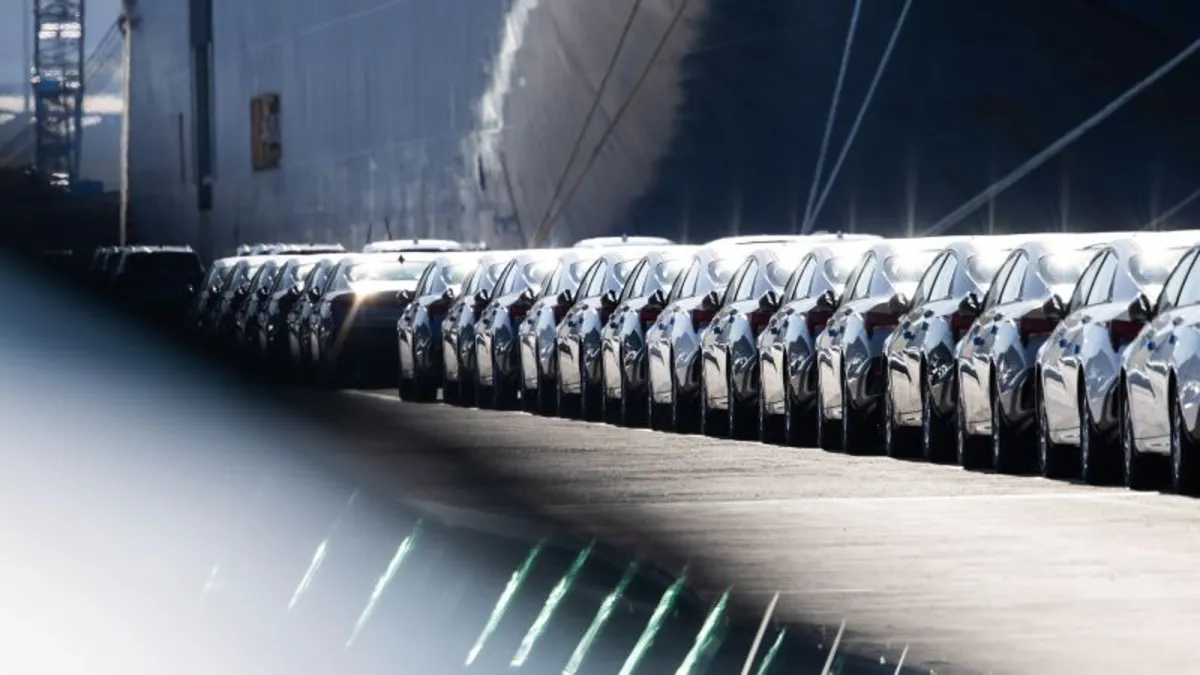
On Monday, Hyundai, the South Korean automotive giant, is set to announce a monumental $20 billion investment aimed at bolstering U.S. manufacturing, including a significant $5 billion steel plant in Louisiana. This pivotal announcement will take place at the White House, featuring key figures such as President Donald Trump, Hyundai Chairman Euisun Chung, and Louisiana Governor Jeff Landry. The White House confirmed these details to CNN ahead of the event.
According to White House Press Secretary Karoline Leavitt, this substantial investment is anticipated to lead to more jobs and increased economic benefits for hardworking Americans. Leavitt highlighted the direct correlation between President Trump’s economic policies and this influx of investment, stating, “More investments, more jobs, and more money in the pockets of hardworking Americans – all thanks to President Trump’s economic policies.” CNN was the first to report on this major deal, which could reshape the landscape of American manufacturing.
The investment announcement comes on the heels of President Trump’s implementation of 25% tariffs on steel and aluminum imports, as well as upcoming levies on automobiles from Asia and Europe. These tariffs are designed to encourage domestic car production in the United States, though the situation remains complex. For instance, Stellantis—the parent company of brands like Jeep, Ram, Dodge, and Chrysler—recently agreed to reopen a previously closed plant in Illinois as part of a deal to resolve a 2023 strike by the United Auto Workers. However, the reopening of this plant is not projected until 2027, highlighting the challenges in increasing American car production.
Despite President Trump’s assertions that tariffs are necessary to "save" the U.S. auto industry, data from S&P Global Mobility indicates that U.S. factories already account for the majority of North American auto production. In fact, approximately 10.2 million cars were manufactured in U.S. assembly plants last year, dwarfing the 4 million produced in Mexico and 1.3 million in Canada. Moreover, nearly 1 million workers are employed at American factories producing vehicles and auto parts, underscoring the significant role of domestic manufacturing in the economy.
The Hyundai investment announcement is timed strategically, coinciding with potential new tariffs set to be enacted on April 2, specifically targeting countries with substantial trade surpluses like South Korea. This move aligns with a broader trend, as other companies such as Taiwan Semiconductor Manufacturing Company and Japan’s SoftBank have also made similar commitments to invest in American manufacturing. Recently, Apple announced a staggering $500 billion investment over the next four years to expand its facilities and manufacturing capabilities in the U.S., likely as a strategy to mitigate new tariffs on imports from China.
Additionally, tech companies including Oracle, OpenAI, and SoftBank have come together to form a new venture called Stargate, which aims to enhance artificial intelligence infrastructure within the United States. Collectively, these companies plan to invest $500 billion into this project in the coming years, further contributing to the growth of American technology and manufacturing sectors.
Joint announcements between new presidents and companies regarding substantial U.S. investments have been a common practice aimed at promoting American manufacturing. However, the success of these initiatives has been mixed. As Hyundai prepares to make its announcement, the focus remains on how these investments will translate into tangible benefits for the U.S. economy and its workforce.